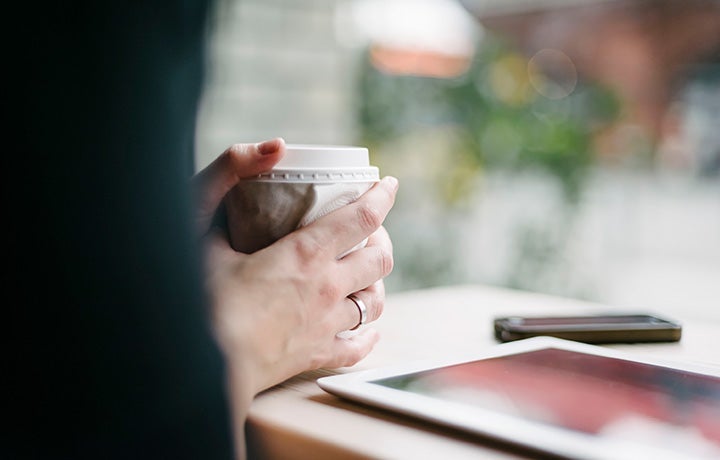How Screen Time Affects Your Mood
Here’s what you should know to keep from getting down.

The last thing anyone needs is an unexpected derailment that makes it difficult to maintain a can-do attitude while you’re trying to lose weight or make healthy choices. Enter screen use.
For most of us, spending time on smartphones, tablets, and other electronic devices is a normal part of daily life. What isn’t so normal: Too much screen use may affect our emotional well-being and has been associated with more anxiety and depression, says Brian Primack, MD, PhD, director of the Center for Research on Media, Technology, and Health at the University of Pittsburgh. Scientists have found some reasons why.
Sleep disturbance
Whether it’s a smartphone, tablet, computer, or television, using an electronic device late at night can contribute to depression, says James Phelps, MD, a psychiatrist with Samaritan Health Services in Corvallis, Oregon, and founder of PsychEducation.org. All screens emit blue light, which interferes with our body’s natural circadian rhythm, disrupting our sleep.
“Messing with electronics late at night affects your sleep cycle,” says Dr. Phelps. For some, sleep disturbance then affects mood, potentially causing or exacerbating anxiety or depression.
To keep screens from wrecking your sleep, give yourself a break before bed. “You want to shoot for something much closer to natural darkness for at least two hours before you try to fall asleep,” says Dr. Phelps.
Be especially aware of your screen time if bipolar disorder is a concern. “When [people who suffer from bipolar disorder] don’t get enough sleep, they’re more prone to have mood episodes,” explains Phelps, who also an expert in bipolar disorder. “They start to cycle between manic phases and depressed phases. So much so that just teaching people to have regular sleep hours is a clearly demonstrated effective treatment for bipolar disorder.”
If you must use screens before bed, Dr. Phelps suggests using special amber-lensed glasses. These glasses have been found to block the blue light that decreases the production of melatonin, a hormone produced by your body that’s associated with falling and staying asleep. Unfortunately, says Dr. Phelps, they work only in about 50 percent of people. For others, consider blocking the blue light directly on your devices using an app like Night Filter, or software like f.lux or Twilight.
“If you’re one of those people who find that messing with your sleep can mess with your mood, then this gives you the means by which you can manipulate your sleep without taking away your electronic devices entirely, which would really be the smartest thing of all,” says Dr. Phelps.
If you’re concerned about your mood, going on a screen time diet (like this one) may be one way to rein in the blues.